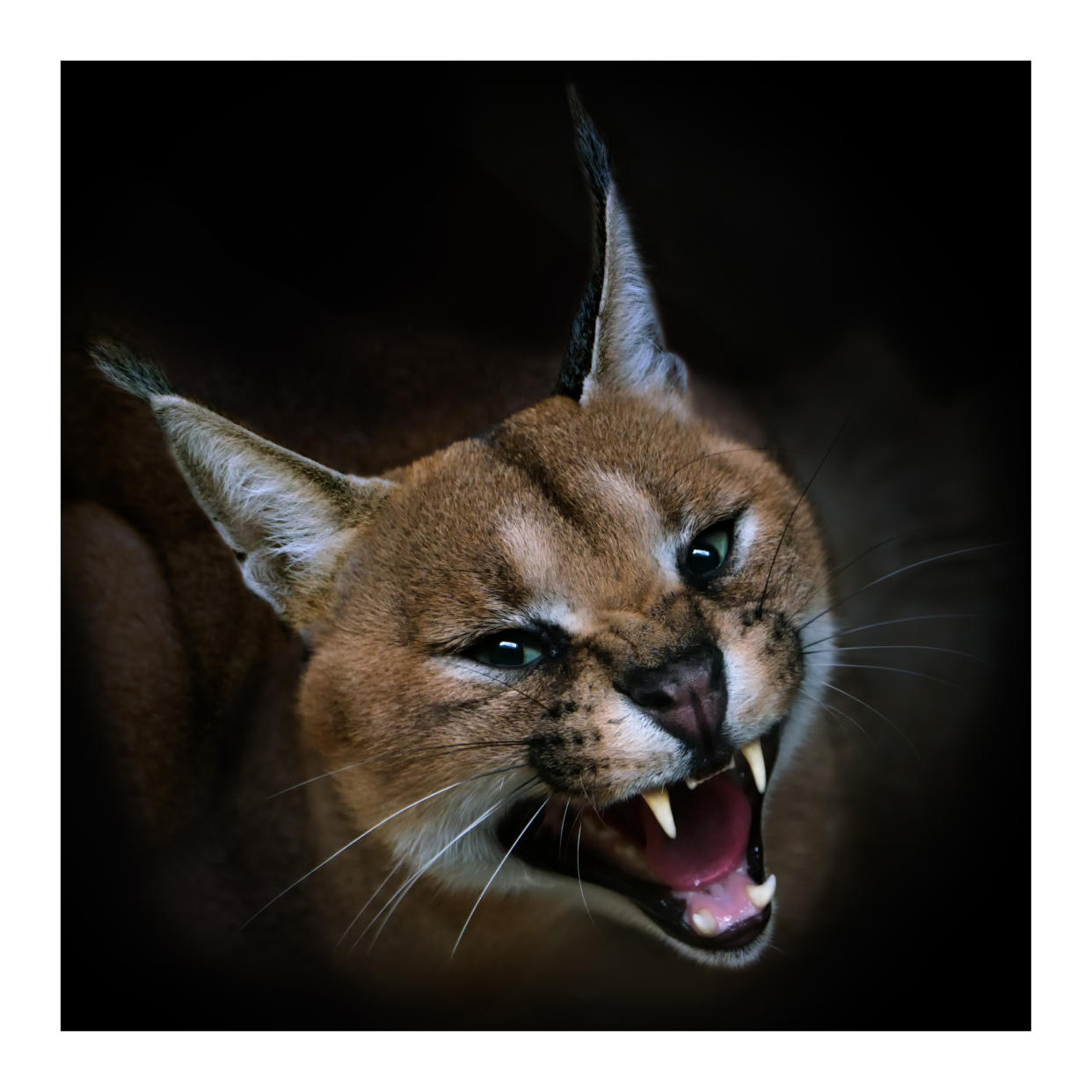April 12th

Swift is a four-year old Caracal that was donated to the Johannesburg Zoo by Lory Park Zoo. He was donated to be playmate and partner for one-year old Emily. Black-backed ears, dark spots on both sides of the muzzle, black spots above the eyes and a black stripe from the eye to the nose break up an otherwise uniform tawny-brown to brick-red coloring. The short, dense coat is slightly longer and whiter on the underside. Females are smaller than the males. During the hot hours of the day, they rest in crevices, and hunt mainly in the cooler morning, night and evening hours. Although they can be considered the fastest cat of their size, their hunting technique is the stalk and spring method like that of the domestic cat. A kill is often dragged into dense cover where it can be eaten without disturbance. New grass or fruit is also sometimes eaten. The Caracal is predominantly nocturnal, traveling up to 20 km per night in search of food. Vocalisations are few, mainly growls and spits in anger. As with other desert animals, their sight and hearing are very good. Caracals are most numerous in South Africa and Namibia. An additional threat is severe habitat loss, as people move further into their territory, and their prey species are driven out.

 Yahoo News
Yahoo News 
